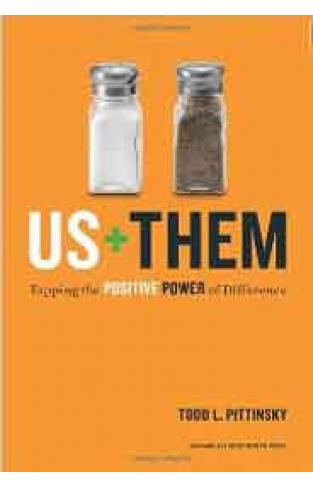You are asked to play a game of word association. The word you are given: prejudice. What do you free associate with this loaded term? "Different" and "discrimination" come to mind. Possibly even the word "hate."
It's time for a new dialog, says professor and researcher Todd Pittinsky--once that swings the pendulum from negative to positive; from "them" to "us." In "Us Plus Them," Pittinsky argues against the assumption that simply reducing prejudice will improve relationships between different groups. The simple rooting out of what we don't want will only fuel the problem. Instead, his research shows that moving from the desire to stamp out prejudice to an approach that builds interest, kinship and engagement will actually open up new possibilities within groups thrown together based on circumstance--whether that's in schools, neighborhoods, companies, or even nations.
Pittinsky's research offers a much-needed path to build helpful, active relationships between different groups in business and society. Much as Martin Seligman and the field of positive psychology have reoriented the science of individual well-being from the study of mental illness to the study of mental "healthiness," this book aims to reverse a long-standing imbalance in the theory and practice of leadership related to groups. For decades, research and practice have adopted a "deficit model" for addressing the problem, assuming that the best we can do is eliminate our prejudice toward others or else try to ignore or eliminate their "otherness." In today's globalized world where difference is a constant (and is what former U.S. President Bill Clinton calls, "our greatest opportunity"), we need a radical new approach to building bridges to move us forward.
"Us Plus Them" presents this new approach and clearly presents the opportunities and responsibilities for leadership the world over.












